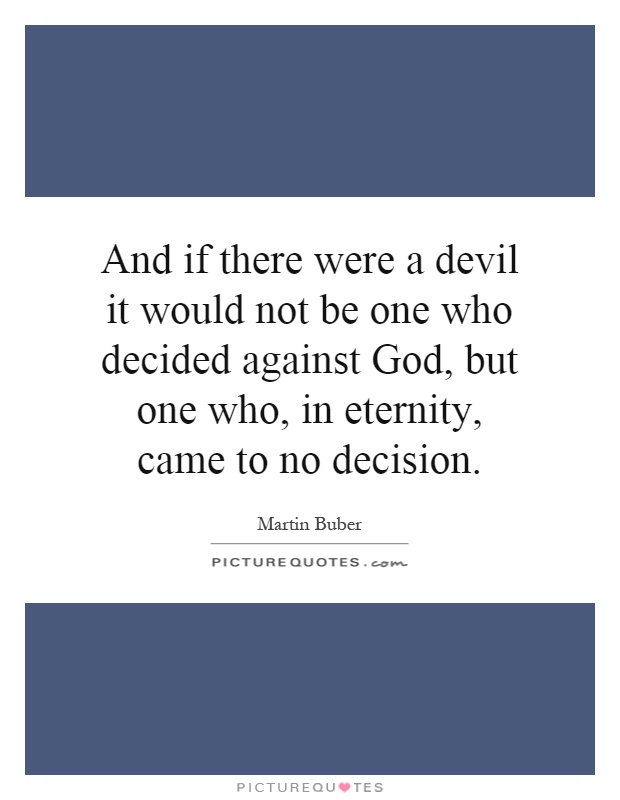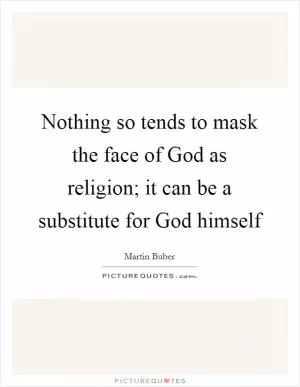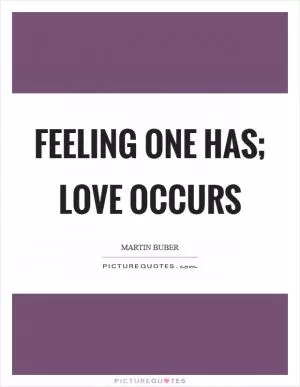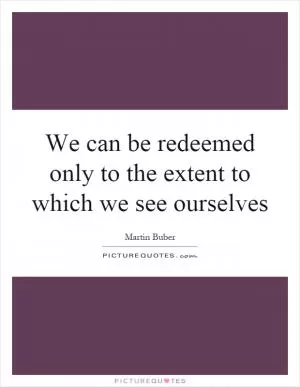And if there were a devil it would not be one who decided against God, but one who, in eternity, came to no decision

And if there were a devil it would not be one who decided against God, but one who, in eternity, came to no decision
In the context of Martin Buber's philosophy, the idea that a devil would be one who came to no decision in eternity is a thought-provoking concept that challenges traditional notions of good and evil. Buber, a Jewish philosopher and theologian, is best known for his philosophy of dialogue and his belief in the importance of authentic relationships with others and with the divine. In his work, Buber often explores the nature of evil and the human capacity for both good and bad.The quote suggests that the true essence of evil lies not in actively choosing to go against God, but in being unable or unwilling to make a decision at all. This idea can be interpreted in several ways within Buber's framework of thought. One interpretation could be that the devil, in this sense, represents a lack of engagement with the divine or a refusal to enter into a meaningful relationship with God. In Buber's philosophy, true evil is not necessarily found in overt acts of rebellion or defiance, but in a state of spiritual apathy or indifference.
Another interpretation of the quote could be that the devil is characterized by a perpetual state of indecision or uncertainty. This could be seen as a form of moral paralysis, where one is unable to commit to a particular course of action or to align oneself with either good or evil. In Buber's view, this lack of decisiveness could be seen as a form of spiritual stagnation, where one is unable to fully engage with the world and with others in a meaningful way.
Overall, the quote challenges us to rethink our understanding of evil and the nature of the devil. Rather than being a figure of pure malevolence or rebellion, the devil in Buber's philosophy represents a more complex and nuanced concept of moral ambiguity and spiritual disengagement. It invites us to consider the ways in which our own indecision and lack of commitment can lead us away from the path of righteousness and into a state of moral uncertainty.












 Friendship Quotes
Friendship Quotes Love Quotes
Love Quotes Life Quotes
Life Quotes Funny Quotes
Funny Quotes Motivational Quotes
Motivational Quotes Inspirational Quotes
Inspirational Quotes